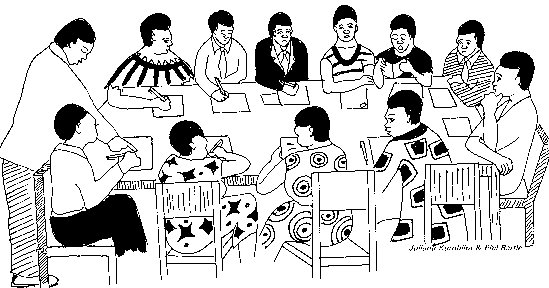 |
| Image via Community Empowerment Collective |
Click HERE to access the document in pdf.
Check it out:
• Transparency and Access to Information. Effective transparency mechanisms make information available to citizens in ways that the information can influence their political choices. They provide complete information about activities and options before key decisions are made, and in local languages, culturally appropriate formats, and in ways that are readily accessible and affordable.
• Inclusiveness. Inclusiveness requires that all people have the opportunity to participate in making decisions that will directly affect their lives. In particular, it involves bringing in politically disenfranchised or marginalized groups that might ordinarily be excluded from decision-making processes. This may include efforts to systematically identify all those whose rights may be affected or who may bear the risks associated with the decision; and to reach out to them and provide whatever assistance they may need to participate (e.g. translation services, travel support, etc).
• Quality of Discourse and Deliberation. Deliberative processes allow affected people to freely and equally express their competing interests, perspectives, and visions of the public good. For decision-making to be based on deliberation rather than raw political power, marginalized stakeholders must be enabled to participate on an equal basis with more entrenched interests. Thus, where contested issues are highly technical, all participants should have comparable access to the expertise necessary to independently challenge the technical claims of other parties. Participants must also have the option to withhold their consent to an agreement if their concerns are not adequately addressed.
• Fairness under Rule of Law. Fairness requires that both the process and its substantive outcomes comport with shared principles of justice and equity. Procedural fairness requires that policies, rules and standards be developed and enforced in impartial and predictable ways, and that processes of representation, decision-making and enforcement are clear, mandatory and internally consistent. Substantive fairness requires that the distribution of costs, benefits and risks from policy outcomes are just and equitable.
• Accountability. Accountability implies that decision-makers must answer for their actions and, depending on the answer, be exposed to potential sanctions. Accountability mechanisms allow citizens to control the behavior of government officials and representatives to whom they have delegated public power. Effective accountability mechanisms require compliance and enforcement. Compliance involves evaluating their actions against clear standards that are based on publicly accepted norms. These include both procedural standards (regarding transparency, inclusiveness, etc.) and standards for assessing outcomes (e.g., on poverty reduction, social equity, and human rights). Enforcement involves imposing sanctions for failing to comply with those standards.
These principles can help to structure participatory, responsive and predictable decision-making processes that can lead to better, more sustainable development outcomes by reconciling competing interests and visions of the public good through deliberation and negotiation. To do so, they must be applied with an eye towards redressing the profound inequities of voice, access and political power between different interests in development debates. If they are applied in this way, they can be powerful tools to enhance the capacity of poor and marginalized people to influence the decisions that affect their lives. If they are not, they are unlikely to improve outcomes very much.


